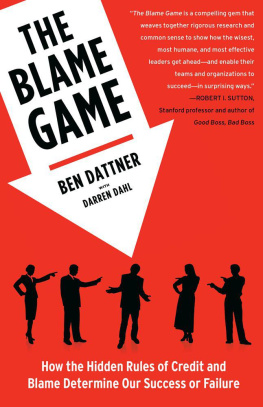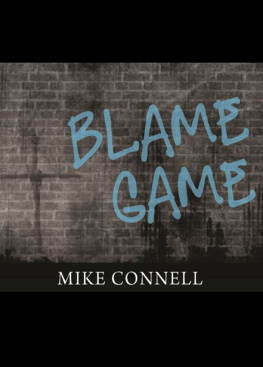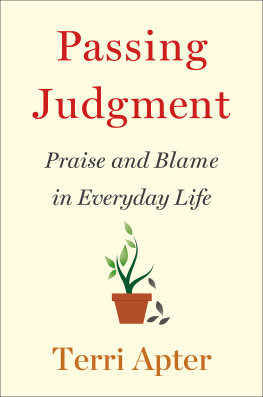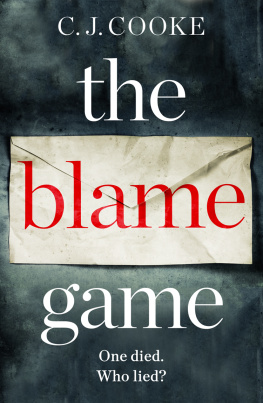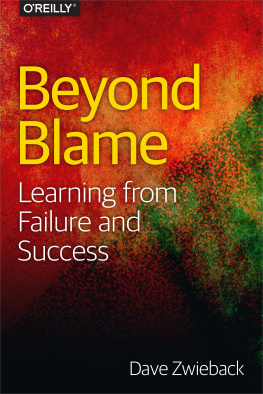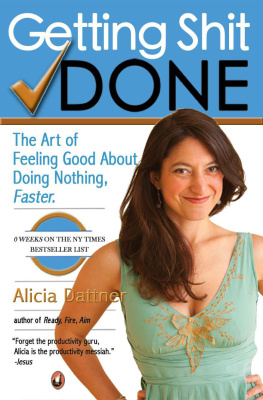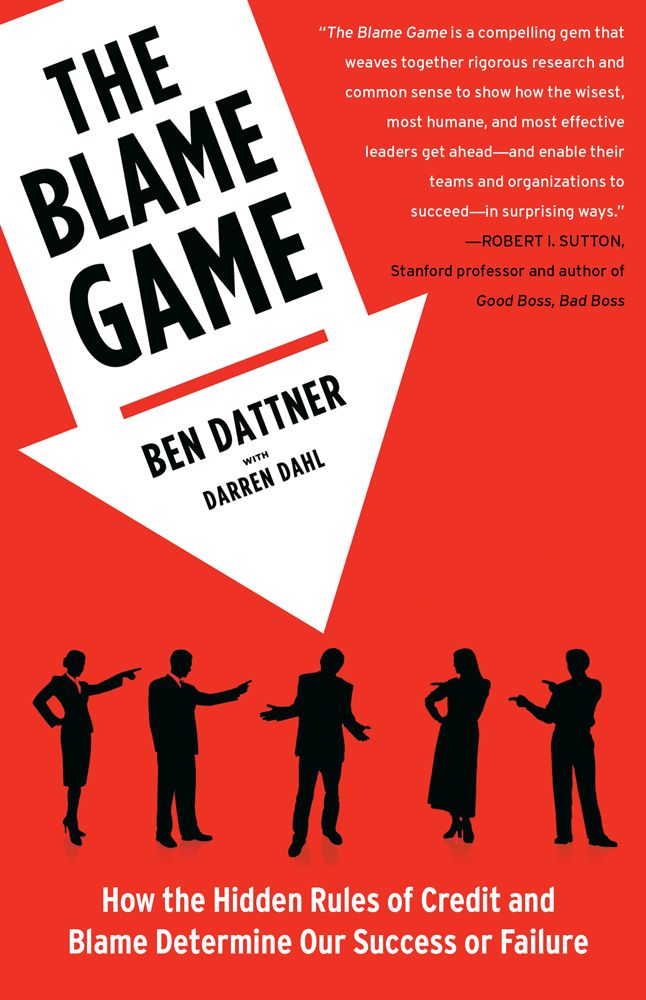Dattner Ben - The blame game : how the hidden rules of credit and blame determine our success or failure
Here you can read online Dattner Ben - The blame game : how the hidden rules of credit and blame determine our success or failure full text of the book (entire story) in english for free. Download pdf and epub, get meaning, cover and reviews about this ebook. City: New York, year: 2011, publisher: Simon & Schuster, Inc.;Free Press, genre: Home and family. Description of the work, (preface) as well as reviews are available. Best literature library LitArk.com created for fans of good reading and offers a wide selection of genres:
Romance novel
Science fiction
Adventure
Detective
Science
History
Home and family
Prose
Art
Politics
Computer
Non-fiction
Religion
Business
Children
Humor
Choose a favorite category and find really read worthwhile books. Enjoy immersion in the world of imagination, feel the emotions of the characters or learn something new for yourself, make an fascinating discovery.
- Book:The blame game : how the hidden rules of credit and blame determine our success or failure
- Author:
- Publisher:Simon & Schuster, Inc.;Free Press
- Genre:
- Year:2011
- City:New York
- Rating:4 / 5
- Favourites:Add to favourites
- Your mark:
The blame game : how the hidden rules of credit and blame determine our success or failure: summary, description and annotation
We offer to read an annotation, description, summary or preface (depends on what the author of the book "The blame game : how the hidden rules of credit and blame determine our success or failure" wrote himself). If you haven't found the necessary information about the book — write in the comments, we will try to find it.
The problem is that so many workplaces foster a blaming culture. Maybe you have a constantly blaming boss, or a colleague who is always taking credit for others work. All too often, individuals are scapegoated, teams fall apart, projects get derailed, and people become disengaged because fear and resentment have taken root. And whats worse, the more emotionally charged a workplace ismaybe our jobs are threatened or were facing a particularly difficult challengethe more emphatically people play the game, just when trust and collaboration are most needed. What can we do? We can learn to understand the hidden dynamics of human psychology that lead to this bad behavior so that we can inoculate ourselves against it and defuse the tensions in our own workplace.
In lively prose that is as engaging as it is illuminating, Dattner tells a host of true stories of those he has worked withfrom the woman who was so scapegoated by her colleagues that she decided to quit, to the clueless boss who was too quick to blame his staff. He shares a wealth of insight from the study of human evolution and psychology to reveal the underlying reasons why people are so prone to blaming and credit-grabbing; its not only human nature, its found throughout the animal kingdom. Even bats do it. He shows how our family experiences, gender, and culture also all shape the way we cope with credit and blame issues, and introduces eleven personality types that are especially prone to causing difficulties and illustrates how we can best cope with them. He also profiles how a number of outstanding leaders, from General Dwight Eisenhower and President Harry Truman to highly respected business figures such as former Intel CEO Andy Grove and Xerox CEO Ursula Burns, employed the power of taking blame and sharing credit to achieve great success.
The only winning move in the blame game, Dattner shows, is not to play, and the insights and practical suggestions in this book will help readers, at any level of any organization and at any stage of their careers, learn to manage the crucial psychology of credit and blame for themselves and others
Dattner Ben: author's other books
Who wrote The blame game : how the hidden rules of credit and blame determine our success or failure? Find out the surname, the name of the author of the book and a list of all author's works by series.

